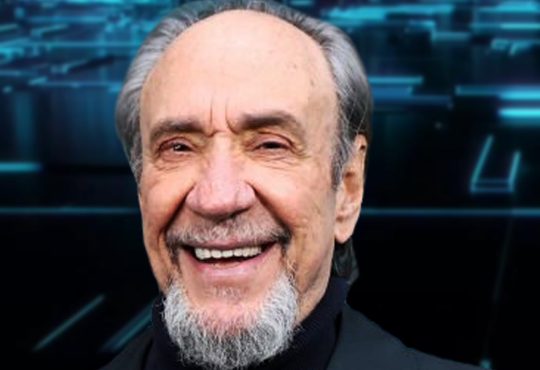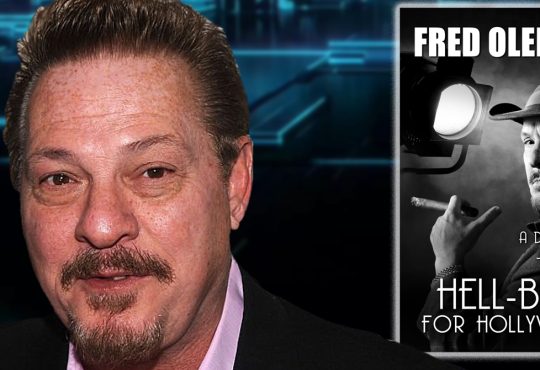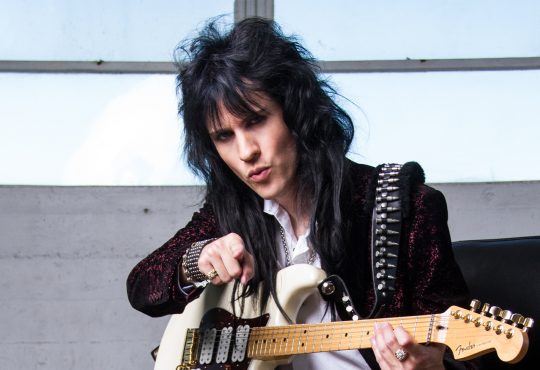‘Hawkeye’ Recap: Hear No Evil
A review of this week’s Hawkeye episode, “Echoes,” coming up just as soon as I don’t have to see Imagine Dragons…
Last week’s two-part Hawkeye premiere had its pluses, particularly Hailee Steinfeld’s energetic and funny performance as Kate Bishop. And it had pieces that didn’t really work, from visually muddled action sequences to an odd conclusion for the second episode that was meaningless to anyone who doesn’t know 21st century Marvel comics, and/or who hasn’t been reading every news story about casting for this show.
“Echoes” — written by Katrina Mathewson and Tanner Bean and directed by the British duo known as Bert & Bertie — starts out by addressing the latter problem, and very quickly conquers the former. It’s an assured and lively episode of TV that takes advantage of all the exposition of the season’s opening episodes to capture everything that’s entertaining about this team-up between two Hawkeyes.
We open with an origin story for Maya Lopez, the mystery woman we glimpsed at the end of last week’s episodes. Like the actor who plays her as an adult, Alaqua Cox (a performing novice with undeniable screen presence), Maya is deaf, an amputee with an artificial leg, and Native American. As a girl (played by Darnell Besaw), she doesn’t seem to fit in anywhere, and her father William (the great Zahn McClarnon from Fargo and Reservation Dogs) can’t afford to send her to a school for the deaf. But she’s more intellectually and physically gifted than strangers assume she will be, and appears to have the ability to mimic other people’s movements and athletic feats, literalizing William’s advice to learn about the hearing world “just by watching.” (In the comics, Maya’s code name is Echo.) Everything in the show being connected, of course, we learn that William was part of the Tracksuit Mafia, and that he was killed by Clint Barton during his Ronin days, dying in his daughter’s arms and leaving a bloody handprint smeared across her face. McClarnon is only onscreen for a few minutes, but even more than Brian D’Arcy James’ cameo in the premiere as Derek Bishop, they are enough to make William’s death acutely felt, and to make Maya somewhat sympathetic even as she keeps trying to hurt Clint and/or Kate.
Maya is linked to Clint not only through her father’s death, but through their senses. After Clint struggles to follow all of her ASL, he explains that he is severely hard of hearing rather than deaf, though the show treats this as a distinction without a difference whenever his hearing aid is broken or turned off. As dramatized in films like The Sound of Metal (and, before it, shows like ER), there is tension between the deaf community and those who use technology (like the Cochlear implant) to restore some level of hearing. Even not knowing who Clint Barton really is to her, Maya takes great pleasure in grinding his device under her boot when it pops loose during a lengthy fight and chase sequence that kicks off with Clint cutting his bonds loose and giving the Tracksuit Mafia hell.
And my goodness, that whole sequence — both the fight in the abandoned toy store and then the car chase through the streets of New York — is like night and day from the dark and choppy action of the opening episodes. Amazingly, it turns out, if you shoot and edit this stuff in ways where the audience can see all the cool moves the heroes and villains are doing, it all looks much more impressive. The car chase is mostly lifted from one of the most entertaining issues of the Fraction/Aja Hawkeye comic, down to Kate going through trial and error with Clint’s unlabeled trick arrows. (The key difference: In the comics, Clint and Kate are in the ’73 Dodge Challenger, rather than being pursued by it.) It’s shot and edited beautifully, particularly in the homage to the famous Children of Men car chase where the camera keeps rotating around the interior of the vehicle in what looks like an unbroken take. It’s a show-offy move, but also one that cleanly and effectively conveys both the danger the heroes are in and the skills Kate is showing by making those shots from the open window of a moving car. We have to be impressed by Kate’s skills to in turn fully appreciate the moment on the subway afterward where Clint acknowledges that she genuinely is one of the world’s greatest archers. But even after the chase shifts into more traditional editing patterns, there’s one thrilling beat after another, whether the revelation that one of the arrows is laced with Pym Particles that can make it gigantic, or Clint and Kate leaping off the bridge and swinging onto the top of the moving train. It’s a great bit of business all around, from a franchise that (with rare exceptions like Captain America: The Winter Soldier and Shang-Chi) has a very spotty record with action — and the sort of thing you really need on a superhero show where the heroes are just superior athletes.

Alaqua Cox as Maya Lopez
Chuck Zlotnick. ©Marvel Studios 2021
The episode peaks with the scene on the bridge, but the quieter parts that follow have value, particularly in showing the evolving relationship between our two title characters. Beyond the compliment about her archery, Clint is now taking Kate seriously as a potential hero type, which is why he warns her about the emotional cost of this life. He has been luckier than most, in that he has a wife he adores and three great kids, but he also lost them for five years, and you can tell that, on some level, he still isn’t allowing himself to feel like their return is real. That’s why he’s invested so much in having a perfect Barton family Christmas week, and why he is so obviously pained when he gets off the phone with Nathaniel (with a translating assist from Kate while his hearing aid is still busted) after he realizes the kids are not expecting him to make it home in time.
And, of course, there’s the messy question of whether Clint has earned his happy ending, given all the murdering he did in between Infinity War and Endgame. Kate and Maya are really struggling to put 2 and 2 together when it comes to Clint being Ronin. It may just be too difficult for a person in the MCU to accept that an Avenger could have gone on a multiyear international killing spree. But Clint knows what he did, and is not proud of it. Even if he only killed bad guys, a fair number of them were likely guys like William, who had people who cared about them and are still grieving the loss Clint inflicted upon them. Even if Clint eventually makes it back to the farmhouse in time for Christmas morning, this is all probably going to get much uglier along the way, especially since the episode ends with Kate’s stepfather-to-be, Jack, holding the Ronin sword to Clint’s throat after discovering the intruders in Eleanor’s penthouse apartment.
When you subtract the clips from previous episodes and the delightful animated David Aja-style end credits, “Echoes” clocks in at a lean 36 minutes or so. That leaves a whole lot to be sorted through in the season’s remaining three episodes, but “Echoes” was among the more entertaining installments of any of these Disney+ Marvel shows so far.
Some other thoughts:
* Ladies and gentleman, start your guessing on the identity of the mysterious “Uncle” who really runs the Tracksuit Mafia. The obvious answer would be the Kingpin, who has comics history with Maya, and who has distinctively large hands like the one we see stroking Maya’s shoulder at her martial arts class. And with rumors that Charlie Cox may soon reprise his role as Daredevil in a more mainstream MCU project, it makes sense that Kevin Feige and company would bring along fellow Daredevil alum Vincent D’Onofrio, whose Wilson Fisk was arguably the most compelling villain of any filmed Marvel project. But whether it’s Fisk, Jack Duquesne, or a player we haven’t seen yet, let’s hope the revelation is more exciting than learning who the Power Broker was on Falcon and the Winter Soldier.
* Speaking of the Netflix shows, it was a running gag that the non-Daredevil heroes would at some point either wear or be confronted by a their costume from the comics, then dismiss the outfit as ridiculous. We get a spin of that trope here with Kate sketching out the Hawkeye costume that Don Heck first drew way back in 1964, only for Clint to suggest that Laura would divorce him for wearing such a thing.
* For more on Maya from the comics, start with 1999’s Daredevil #9, by David Mack and Joe Quesada. Depending on what the show does with her over the remaining three episodes, I’ll have some other reading recommendations as we go.
* Finally, in the Fraction comic, Kazi (played here by Fra Fee) is a Tracksuit Mafia ally who favors clown makeup, where here he is Maya’s interpreter and voice of reason. He is also apparently a friend from childhood — probably the kid who gets knocked down at the martial arts class? — since the closing credits list an actor playing Young Kazi.







